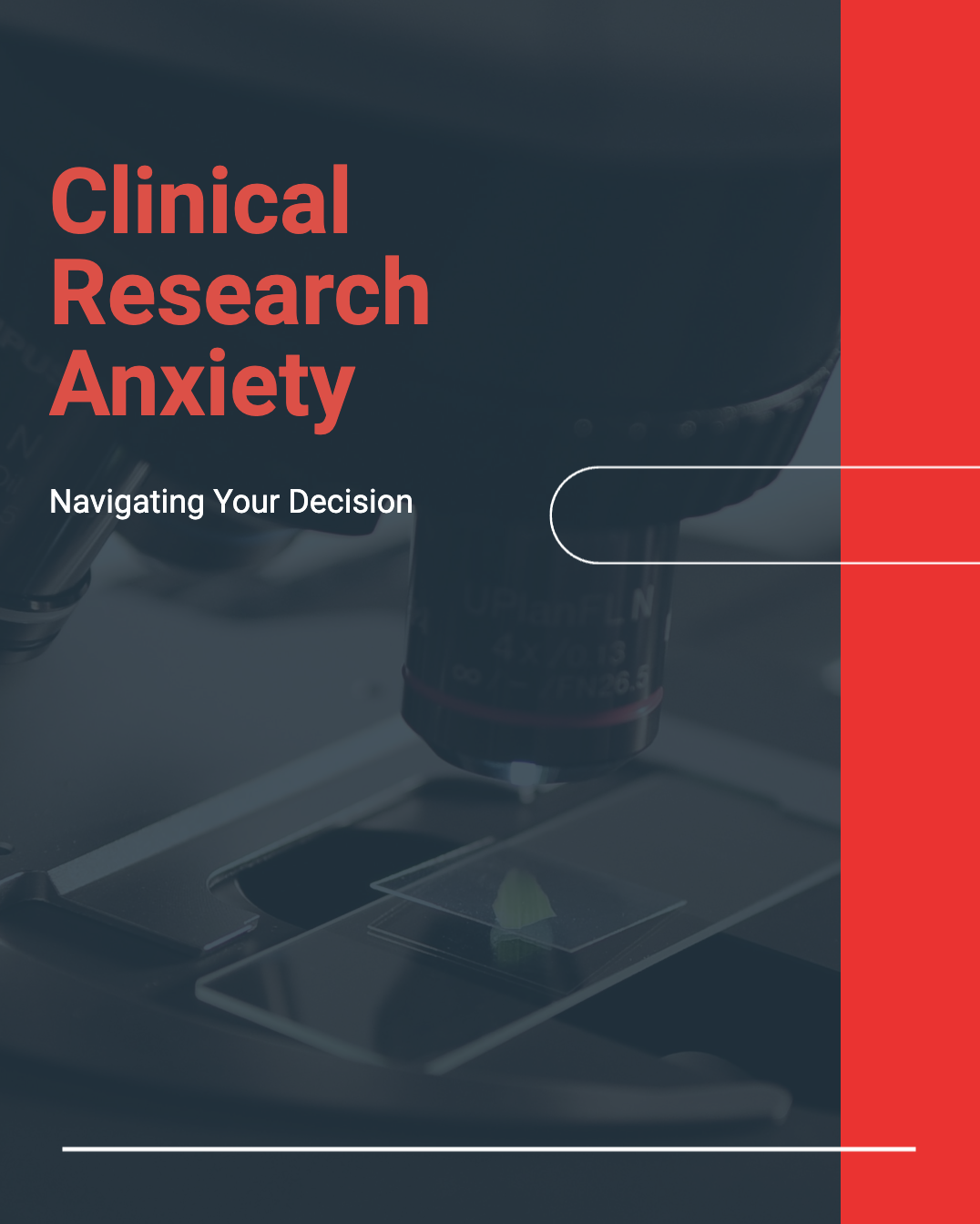
When we are invited to participate in clinical research, it can stir up a mix of excitement and anxiety. Many people feel uncertain when faced with a decision that affects their health and future. In this article, we explore anxiety management in the context of clinical research participation. We break down both the psychological strategies that help ease these feelings and the ethical considerations that ensure your rights and safety are respected. Our goal is to provide you with clear, practical advice that can empower you to make informed choices and manage your anxiety effectively.
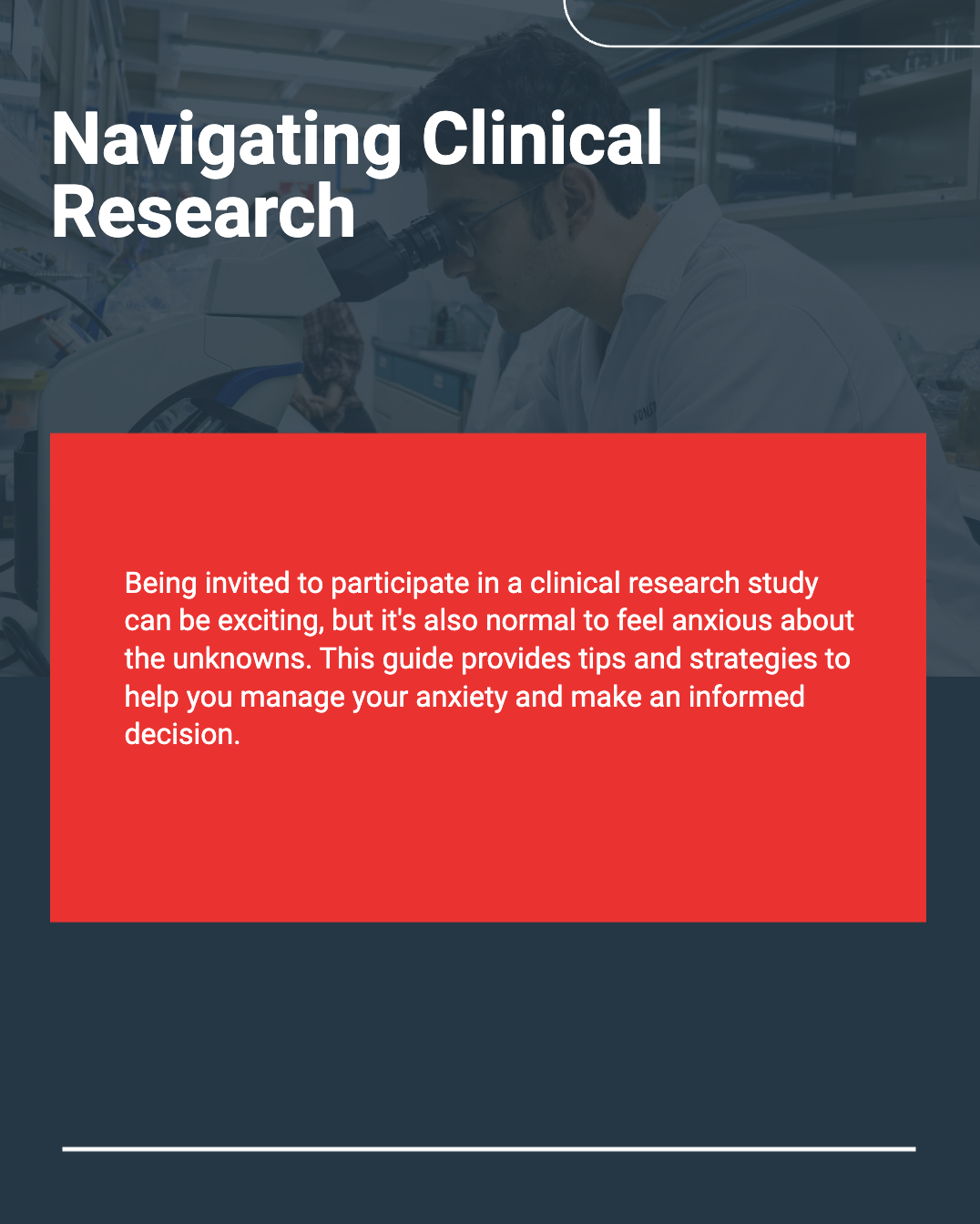
What is Clinical Research Anxiety?
Clinical research anxiety refers to the unease or worry that many feel when asked to join a clinical study. This feeling can stem from concerns about the unknown, fear of side effects, or doubts about the study’s purpose. It is normal to have questions when your health is involved. We often see that the very idea of stepping into a research setting can make your heart race and your thoughts scatter.
Recognizing the Signs of Anxiety
Anxiety can show up in many ways. Some common signs include:
Understanding these signs can help you recognize when your anxiety might be impacting your decision-making process. When you notice these symptoms, it’s important to take a step back and consider ways to address them.
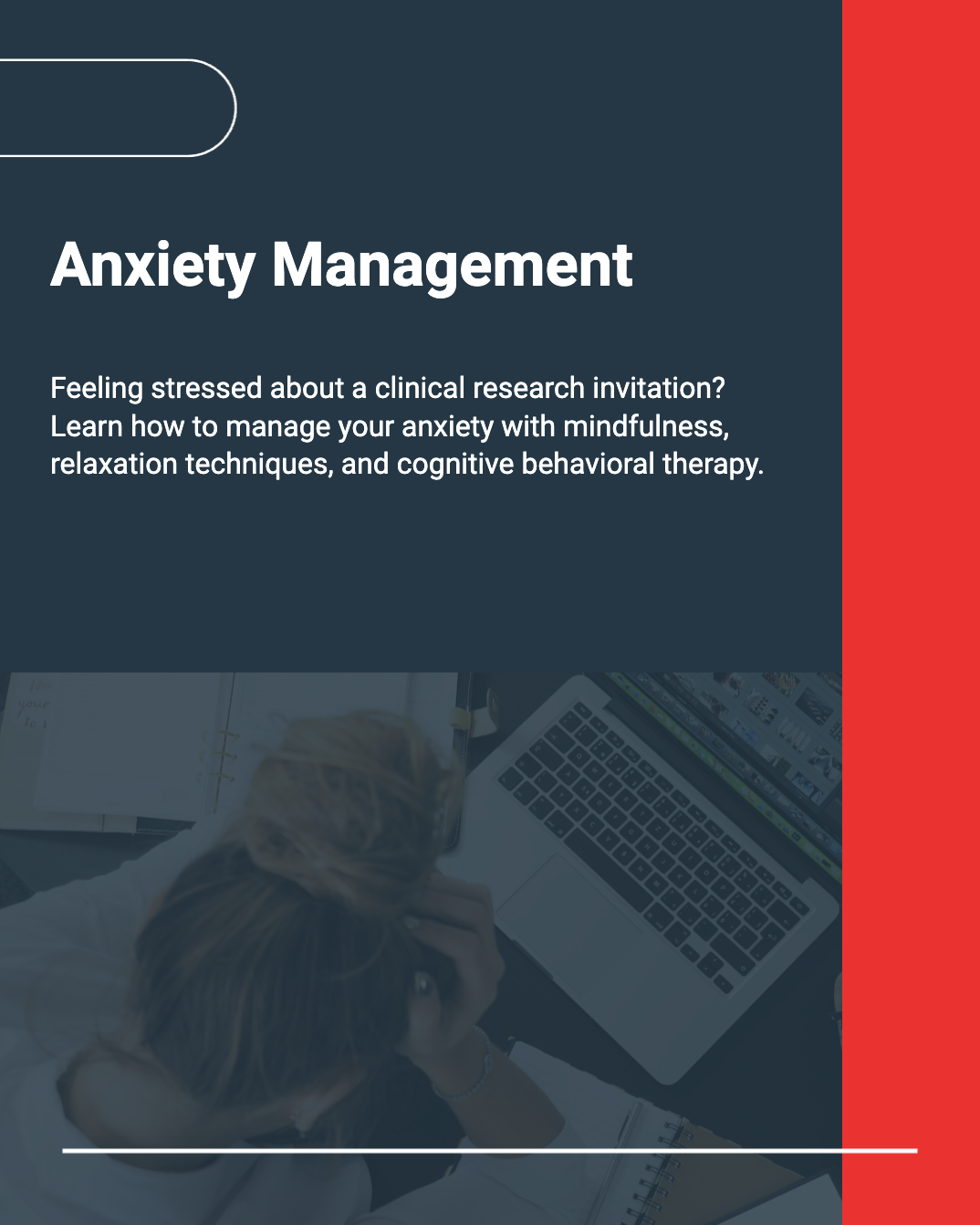
Managing anxiety is a vital part of making informed decisions about clinical research. By using effective strategies, you can transform worry into a more controlled and calm state. Below are some key approaches to anxiety management.
Mindfulness and Relaxation Techniques
Mindfulness means paying close attention to the present moment. It is a powerful tool that can help you refocus your thoughts. Simple techniques include:
These practices can ease anxiety and help you feel more centered. When you calm your mind, you make room for rational thought and clarity about your options.
Cognitive Behavioral Approaches
Cognitive Behavioral Therapy (CBT) focuses on changing negative thought patterns. It can be especially helpful when you’re dealing with uncertainty about clinical research. With CBT, you:
This approach teaches you to see situations from a different perspective, reducing the intensity of your anxiety.
Building a Support System
A strong support network is invaluable when facing challenging decisions. Consider the following steps:
Knowing that you are not alone in your feelings can help you feel more empowered to navigate the clinical research process.
| Psychological Strategy | Key Benefit |
|---|---|
| Mindfulness and Relaxation Techniques | Reduces stress and brings focus to the present moment. |
| Cognitive Behavioral Approaches | Helps challenge negative thoughts and promote clarity. |
| Building a Support System | Provides emotional backing and shared experiences. |
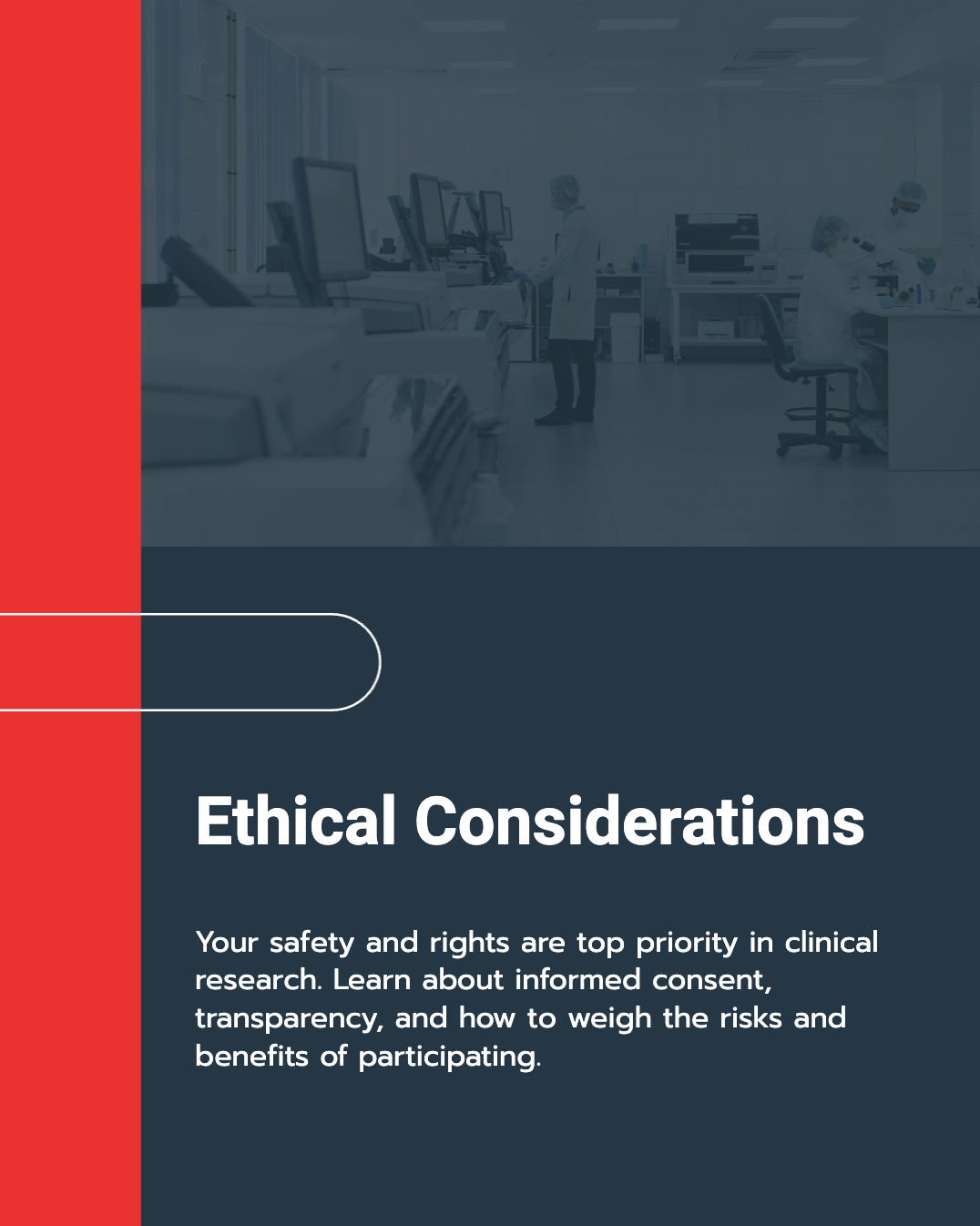
Participating in clinical research involves more than just managing your feelings. It is crucial to understand the ethical framework that protects you as a participant. Let’s explore the ethical aspects that help ensure your participation is safe and informed.
Informed Consent and Transparency
One of the cornerstones of ethical clinical research is informed consent. This means:
Transparency is key. Researchers must be honest about the goals of the study, potential risks, and any benefits you might receive. This process helps build trust and gives you the power to decide confidently.
Evaluating Risks and Benefits
When considering clinical research, it is essential to weigh the risks against the potential benefits. Here are some important points:
A careful evaluation will help you decide if the study aligns with your personal values and health goals. It is always a good idea to discuss any concerns with your healthcare provider.
Making a well-informed decision is a blend of understanding your emotions and knowing the facts about the study. Here are some practical tips:
Table: Key Decision-Making Tips
| Tip | Action |
|---|---|
| Ask Questions | Clarify details with the research team. |
| Take Your Time | Avoid rushing and let yourself process the information. |
| Consult Trusted Advisors | Get perspectives from family, friends, or professionals. |
| Review Study Materials | Understand all aspects before committing. |
| Write Down Your Thoughts | List pros and cons to visualize your decision process. |
{insert image here + image idea: A flowchart showing the decision-making process from initial invitation to final decision, highlighting key steps like asking questions and consulting advisors.}
If you find yourself struggling with anxiety or need more information about clinical research, numerous resources are available:
These resources can help you feel more secure and informed about your decision to participate.
Here, we provide a step-by-step guide to help you manage anxiety when considering clinical research:
Following these steps can help you manage anxiety and feel confident about your decision-making process.
{insert image here + image idea: A simple checklist graphic that visually represents the practical steps for managing anxiety.}
1.What is clinical research and why is it important?
Clinical research is a way to study new treatments and understand diseases better. It plays a vital role in advancing medicine and improving patient care. Your participation can help shape future health solutions.
2. How can I manage my anxiety when invited to join a clinical study?
You can manage anxiety by using mindfulness techniques, cognitive behavioral approaches, and by building a strong support system. Taking time to ask questions and understand the study details also helps reduce anxiety.
3. What does informed consent mean in clinical research?
Informed consent means that you receive all the information about the study, including its purpose, risks, and benefits. It ensures that you make a fully informed decision and that you can withdraw at any time if you feel uncomfortable.
4. What are the common signs of anxiety I should look out for?
Common signs of anxiety include a racing heart, tight chest, persistent worry, difficulty focusing, and trouble sleeping. Recognizing these signs early can help you take steps to manage your anxiety effectively.
5. Who should I talk to if I have concerns about joining a clinical study?
It is a good idea to discuss your concerns with your healthcare provider, a mental health professional, or trusted family members and friends. These individuals can provide guidance and support during the decision-making process.
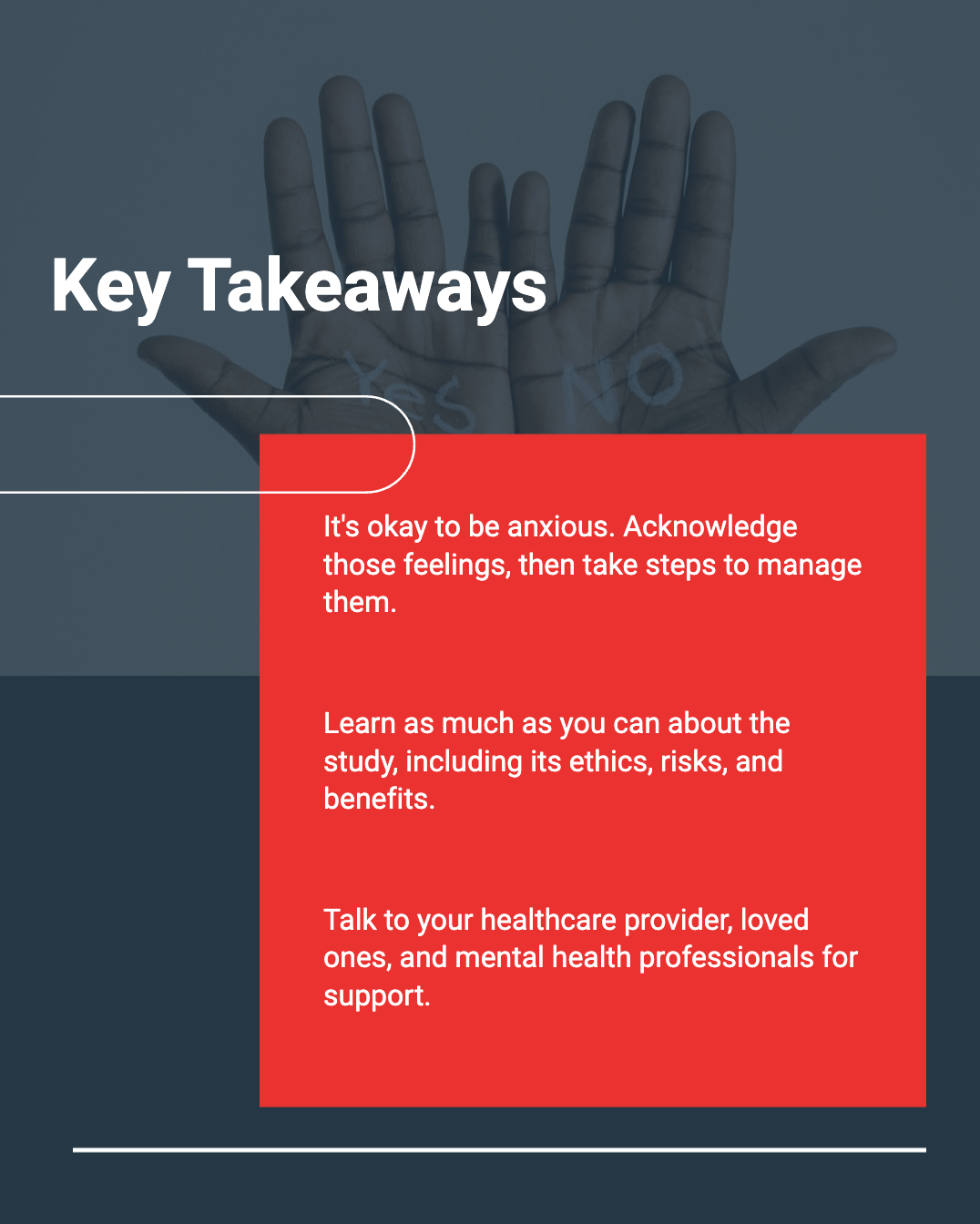
We understand that the prospect of joining a clinical research study can be both exciting and intimidating. By combining anxiety management techniques with a clear understanding of ethical standards, you can make a confident, informed decision about your participation. It is important to remember that your feelings are valid and that seeking information and support is a key step toward reducing anxiety. We hope that the strategies and insights shared in this article help you navigate this journey with greater ease and assurance. Your well-being is at the heart of every decision, and by taking the time to manage your emotions and understand the ethical considerations, you are taking an important step toward a healthier future.
Taking part in clinical research is a significant decision that affects not only your own life but also the lives of others. With the right approach and support, you can overcome anxiety and contribute to advancements in medicine that benefit us all. Remember, you are never alone—there is a wealth of resources and communities ready to help you every step of the way.
By understanding your anxiety and applying practical strategies, you can transform uncertainty into empowerment. We invite you to use the tips, tables, and step-by-step guides provided in this article as tools to help you make the best possible decision for your health. Thank you for taking the time to explore these psychological strategies and ethical considerations with us.
Embrace the journey, stay informed, and trust in your ability to make decisions that honor both your well-being and the broader goals of medical progress.
 28.03.2025
28.03.2025